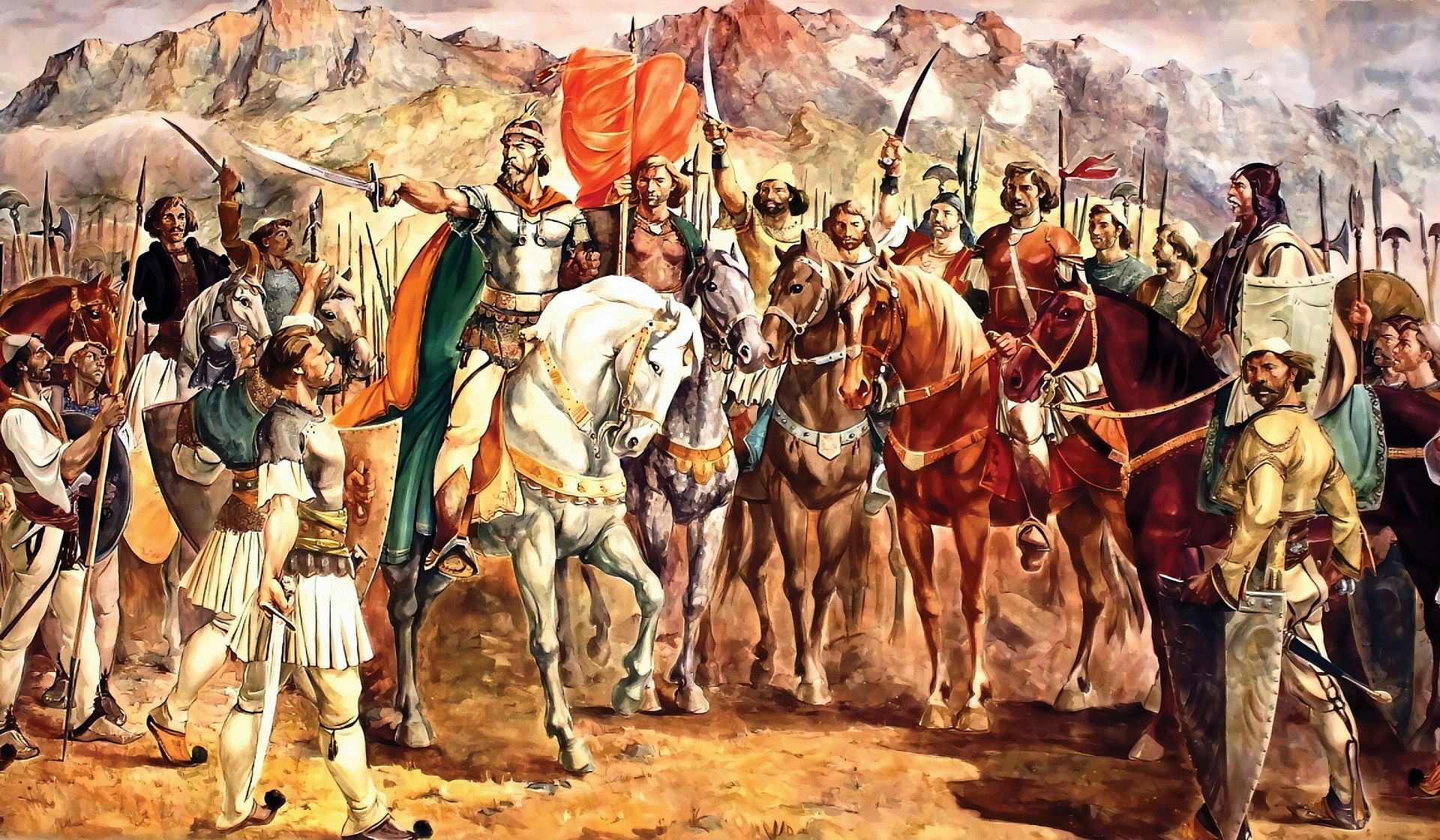
The story of Skanderbeg, also known as Gjergj Kastrioti, is one of the fascinating tales of heroism in Albanian history. He was a nobleman who became a legend in his own time for his military prowess and leadership skills. What makes Skanderbeg's story so remarkable is his ability to unite the Albanian people, who had been divided and conquered by various foreign powers for centuries, in an unlikely effort to fight for their freedom.
Skanderbeg was born in 1405 in Kruja, a town in modern-day Albania. He was the son of a nobleman, and his family had a history of serving the Ottoman Empire, which had conquered much of the Balkans at the time. As a young man, Skanderbeg was sent to Istanbul to be trained as a soldier and eventually rose to the rank of general in the Ottoman army. However, in 1443, Skanderbeg had a change of heart. He realized that the Ottoman Empire was not interested in preserving the culture and traditions of the Albanian people but rather in exploiting them for their gain. He decided to break away from the Ottomans.
He returned to Albania, where he rallied his fellow countrymen to fight against their oppressors. At first, the Albanian people were hesitant to follow Skanderbeg. They had been conquered and divided for so long that they had lost their sense of unity and nationalism.
However, Skanderbeg was a charismatic and persuasive leader who could win over the support of the Albanian nobility and the common people. He began by capturing the fortress of Kruja, his hometown, and using it as his base of operations. Skanderbeg's first significant victory came in 1444 when he defeated an Ottoman army led by Sultan Murad II. This was a substantial victory for the Albanians, showing they could stand up to the Ottoman Empire and win.
Skanderbeg went on to win several more battles against the Ottomans, including the Battle of Ohrid in 1464, which was considered his greatest military triumph. What made Skanderbeg's victories even more impressive was the fact that he was often outnumbered and outgunned by the Ottoman army. The Ottomans had a much larger and better-equipped army. Still, Skanderbeg was able to use his knowledge of the Albanian terrain to his advantage.
He used guerrilla tactics and hit-and-run attacks to harass the Ottoman army. He could win battles through sheer determination and bravery. But SKanderbeg's greatest achievement was not his military victories but his ability to unite the Albanian people for a common cause. He overcame the deep-seated divisions that had plagued Albanian society for centuries and created a sense of national pride and identity.
He brought Albanians from different regions, religions, and social classes together and inspired them to fight for their freedom. Skanderbeg's leadership was crucial in the Albanian struggle for independence, but he was not alone in his efforts.
He had the support of many other Albanian patriots, including the poet and scholar Naim Frasheri, who wrote stirring poems and essays that inspired his countrymen to fight for their rights. Many other military commanders fought alongside Skanderbeg, including his loyal lieutenant, Hamza Kastrioti.
Skanderbeg's legacy is still celebrated in Albania today. He is considered a national hero and is honored with statues, monuments, and even a national holiday. His story has inspired generations of Albanians to fight for their rights and defend their country against foreign invaders.
In conclusion, the story of Skanderbeg is a testament to the power of leadership, determination, and unity in the face of existential crisis. His story stands the test of time as an example to the Albanian community of the importance of coming together and uniting under a common flag to preserve the traditions and culture that bind us all.